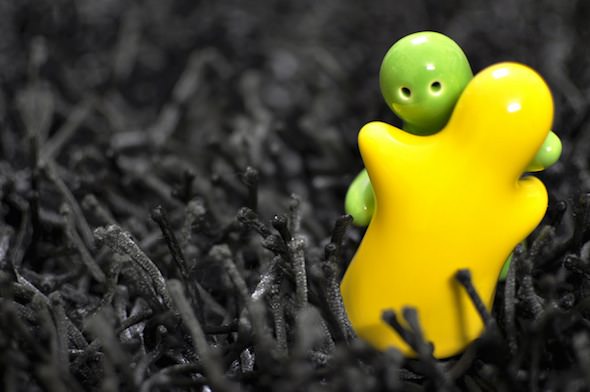A Surer Secret to Firmer Friendship
A survey suggests one in 10 British people -- 5 million adults -- lack what they consider a close friend. Guardian correspondent Tim Lott proposes that "pride" and lack of "humility and the recognition of human fallibility" are partly to blame.
A survey suggests one in 10 British people — 5 million adults — lack what they consider a close friend. Guardian correspondent Tim Lott proposes that “pride” and lack of “humility and the recognition of human fallibility” are partly to blame.
“Too many falter on stubbornness or the determination to hold on to offence,” Lott writes in a comment piece Tuesday. “Even factoring in that many of these unfortunates may be elderly people whose friends have died, or inadequates who lack functional social skills, that is still a significant number of ordinary people who just don’t know how to maintain good friendships.”
Lott says that he is “fortunate to be able to claim at least four friends, of both genders” stretching back nearly 40 years, and others that are “more recent and durable.” But he’s lost enough to know that friendships do not maintain themselves. The more intimate relationships become the more difficult they are to preserve. Honesty, which is a prerequisite, entails risk. A friend who is upset by something you said “can just drop you.”
The possible foundations are as various. They “can be rooted in a number of different impulses. Unhealthy elements like need, the desire for borrowed status, and the wish for flattery are as common as the more healthy ones like mutual interests, sense of humour and natural compatibility. The healthy and unhealthy are often mixed together, the latter concealed under the myth of ‘friendship,’ which suggests, more than marriage, a certain (unrealistic) perfection of sensibility.” False ideas about who people are can come easily in friendly negotiations. And women might struggle more in the long run because, in his experience, “they seem to have an unspoken pact that a friend should always be supportive.”
Lott concludes, “The nature of friendship changes, and you have to change with it. Once, hopefully, I fascinated my friends and charmed them. After 40 years, I am sure I often bore them — and that is inevitable. A good friendship, like a good marriage, ceases after a while to be a mutual entertainment society and becomes instead a sorority or fraternity of battle-scarred veterans. We are still here, we still enjoy being around each other, and we treasure our shared histories. This is something precious, even if it isn’t always a laugh riot.”
— Posted by Alexander Reed Kelly.
Your support matters…Independent journalism is under threat and overshadowed by heavily funded mainstream media.
You can help level the playing field. Become a member.
Your tax-deductible contribution keeps us digging beneath the headlines to give you thought-provoking, investigative reporting and analysis that unearths what's really happening- without compromise.
Give today to support our courageous, independent journalists.






You need to be a supporter to comment.
There are currently no responses to this article.
Be the first to respond.